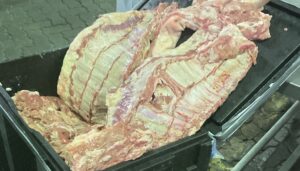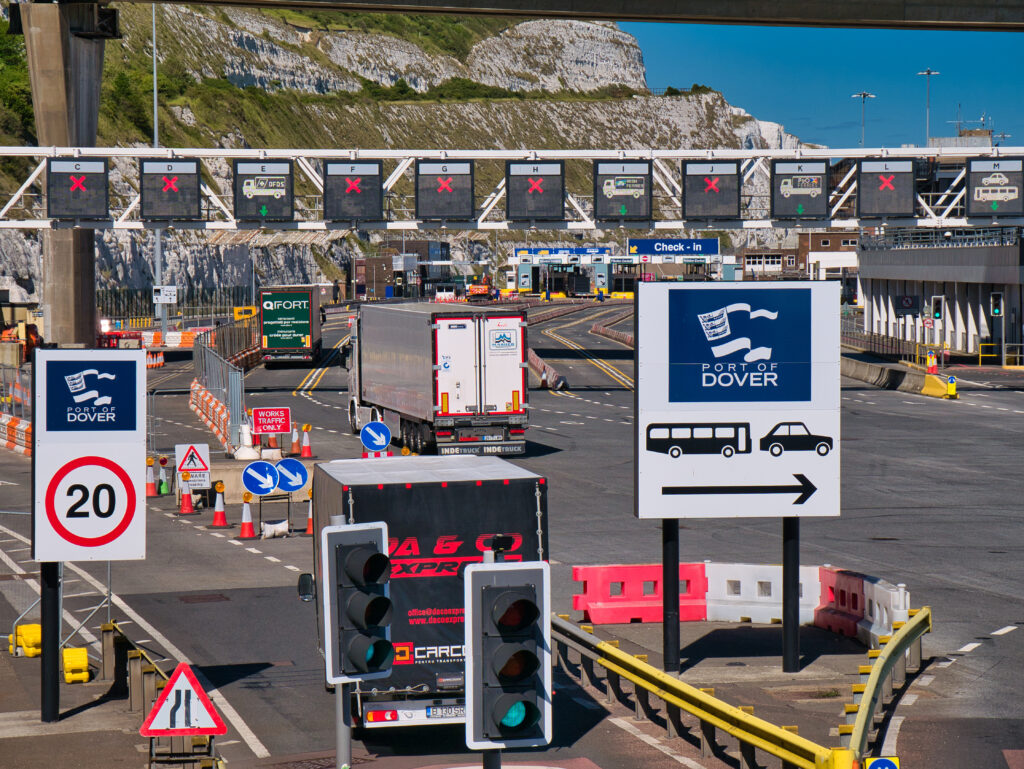Defra has offered funding to enable checks for illegal meat imports to continue at Dover, but it is not enough to protect the livestock sector from potentially devastating disease outbreaks, the port authority says.
Dover Port Health Authority (DPHA) had submitted various funding proposals to Defra for 2025-26, including £6m for about 50% coverage, but all have been ignored, according to Lucy Manzano, DPHA’s head of port health and public Protection.
Ms Manzano warned during an Environment, Food and Rural Affairs (EFRA) hearing in February that, unless a fund agreement is secured for the new financial year, DPHA’s checks for illegal meat imports would have to cease.
Defra has offered £3.1m for the financial year just started, but this would provide just 20% operational coverage at Dover, broadly in line with the past year, and no operational coverage at Coquelles, in France.
It also comes with caveats that would make any delivery ‘immensely challenging’, Ms Manzano said. This includes no provision for official veterinarians, who play a key role in identifying products of animal origin.
“This would leave the border largely open. When DPHA are not operating, these checks do not take place,” she said in late-March.
“We have written to Baroness Hayman (the Defra minister for biosecurity) advising of this, especially in the context of the escalating pressures we are experiencing at the border with the active creep of foot-and-mouth, African swine fever and Peste des petits ruminants (PPR) in Europe. We have requested an urgent review of the funding that has been offered.”
Ms Manzano has also repeatedly highlighted flaws in the government’s Border Target Operating Model (BTOM) for commercial import checks.

She recently told MPs that since the implementation of the BTOM at Dover, illegal meat seizures have escalated as the UK’s weak border controls are being exploited, resulting in tonnes of illegal products being transported across the EU and into GB in vast quantities from countries like Romania, where imports are restricted due to ASF.
DPHA has now seized more than 214t of illegal meat at Dover since September 2022, and 55t since the start of this year, despite only operating at 20% capacity.
Defra confirmed that it had put a funding proposal to DPHA and said it ‘remained committed to agreeing an appropriate funding model for 2025/26 to help tackle illegal imports’.
Complicit
A coalition of pig sector and meat industry bodies has recently written to Defra secretary Steve Reed urging him to take immediate action to strengthen the UK’s national disease control measures. The coalition said ASF and FMD outbreaks in the EU ‘underscore the imminent risk to the UK’.
With 90% of illegal imports arriving via Dover, they said: “We believe the Government must urgently invest in targeted enforcement at key ports of entry.”
Last week, the NFU has joined forces with former Defra minister and Food Standards Agency chair, Lord Rooker, to call for a cross-government biosecurity plan and sufficient investment to counter the biosecurity risks the UK faces. “Livestock businesses are worried that the current import controls don’t match the scale of the threat to the nation’s biosecurity and food safety,” NFU president Tom Bradshaw sent.
NPA chief executive Lizzie Wilson said it was vital sufficient resource is provided to enable Dover and other port authorities to intercept potentially infected meat.
She told the EFRA Committee in March the relatively small resource being requested would pale into insignificance versus the cost of a notifiable disease outbreak, with ASF forecast to cost up to £100m and FMD ‘potentially £14.7 billion’, based on the 2001 cost.
“If we do end up with another notifiable disease, government will be complicit, if they’ve not actually stopped the meat that they are entirely aware of is coming into this country,” she said.
The UK’s border controls came in for further heavy criticism at subsequent EFRA hearings. Nigel Jenney, chief executive of the Fresh Produce Consortium, described them as ‘the most expensive and least efficient globally’.
In a letter to Baroness Hayman that also called for further clarity on Defra’s response to Germany’s FMD outbreak, EFRA chair Alistair Carmichael reiterated his call for Defra to ensure DPHA has ‘adequate funding’.
Pragmatic approach
Commenting on the BTOM, Defra said it was taking a ‘pragmatic approach’ to phasing in EU import controls, which was ‘carefully calibrated to balance an expectation that businesses will do their best to comply whilst protecting biosecurity and minimising disruption to the flow of goods’.
It insisted TODCOF auto-clearance system is ‘a contingency measure that the public would expect a government digital service to have’, and is designed to support PHAs in their management of imports. TODCOF can be configured to ensure goods of greatest risk and concern are not auto-cleared, it added.




